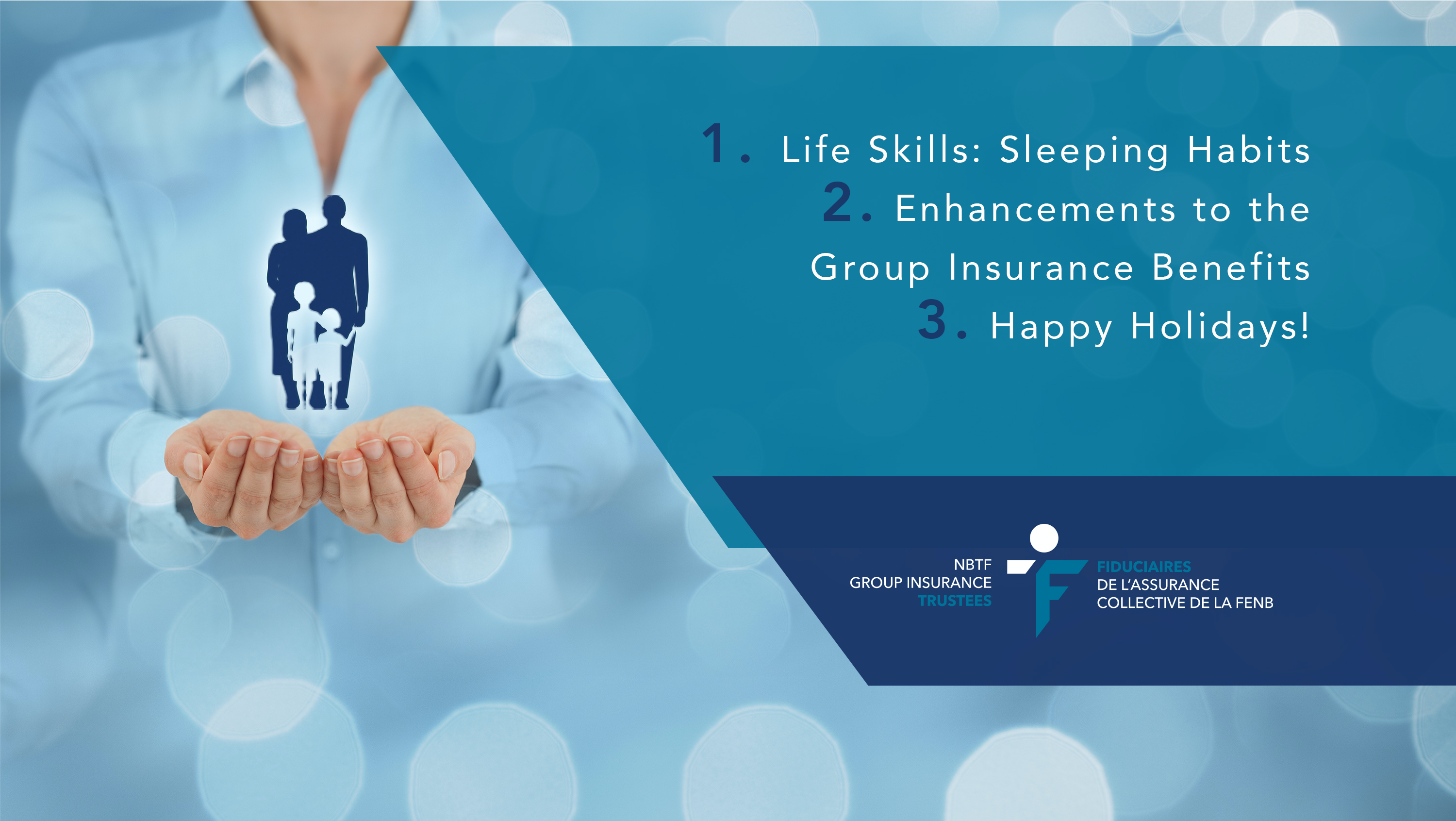 We spend about one-third of our lives sleeping (or trying to sleep).
We spend about one-third of our lives sleeping (or trying to sleep).
Sleep has a vital function in our body, just like breathing or digesting: it stimulates our nervous system and our memory, it strengthens our immune system, it repairs our physical and mental strengths, and it protects our heart.
Although sleeping needs vary according to age, work and levels of physical activity, it has been shown that the average ideal sleep duration for adults is between 7 to 9 hours per night (26-64 years old).
However, sleeping a lot does not mean sleeping well! Quality is better than quantity. To ensure a good night’s sleep, it can be useful to ask ourselves some questions about our behaviours or routines that have a real influence on our sleep cycle. Here are some examples:
- Is my internal clock (that regulates circadian rhythms) regular or irregular?
- What amount of sleep do I need?
- What is my ideal wake-up time?
- Can I recognize the signs of sleepiness? My muscles are relaxing, my breathing slows down, my body feels colder, …
- How much caffeine or alcoholic beverages am I taking? Caffeine can prevent some people from falling asleep, and although alcohol sometimes seems to induce sleep, it can disturb sleep after the effects wear off.
- My dietary system. Do I sleep better on a full stomach or on an empty one?
- My medications. Can I change the time of day I take it or the quantity? Verify with your doctor.
Talk to your doctor if you have trouble sleeping or experience difficulties functioning well during the day.
Creating an atmosphere that encourages sleep!
![]() Ideally, the bedroom temperature should be set between 17 and 19°C, and keep it well ventilated.
Ideally, the bedroom temperature should be set between 17 and 19°C, and keep it well ventilated.
![]() Test the darkness of your room. Keep your room completely dark, wear an eye mask or sleep with the curtains open. The effect can vary from one person to another.
Test the darkness of your room. Keep your room completely dark, wear an eye mask or sleep with the curtains open. The effect can vary from one person to another.
![]() Reduce invasive noises. Use earplugs, install a fan (for background or white noise) or listen to soft music.
Reduce invasive noises. Use earplugs, install a fan (for background or white noise) or listen to soft music.
![]() Vary your position in bed. Try sleeping on your side, on your back, legs up, with heavy or lightweight blankets, etc. Find what works best for you.
Vary your position in bed. Try sleeping on your side, on your back, legs up, with heavy or lightweight blankets, etc. Find what works best for you.
![]() Diffuse calming and purifying essential oils (such as basil, chamomile or lavender).
Diffuse calming and purifying essential oils (such as basil, chamomile or lavender).
![]() Establish a bedtime ritual.
Establish a bedtime ritual.
Your Group Benefits: Enhancements to the Group Insurance Plan
Every year, the Group Insurance Trustees review the membership benefits package and proceed to the renewal of group insurance policies. This year, we are pleased to announce benefits enhancements for NBTF members.
Health Insurance
| January 2021 | January 2022 | |
Maximum annual reimbursement for paramedical expenses:
|
$600 | $700 |
Maximum annual reimbursement for paramedical expenses:
|
$700 | $800 |
Vision Care
| January 2021 | January 2022 | |
Maximum reimbursement per 24 consecutive months (12 months for dependent children):
|
$300 | $350 |
Dental Care
| January 2021 | January 2022 | |
Major restorative :
(co-payment of 80%) |
$2,000 | $3,500 |
| Lifetime maximum for orthodontics (co-payment of 50 %) |
$2,000 | $5,000 |
If you have any questions regarding your group insurance benefits, please contact Johnson Inc. at 506-458-1981 or 1-888-851-5500.










